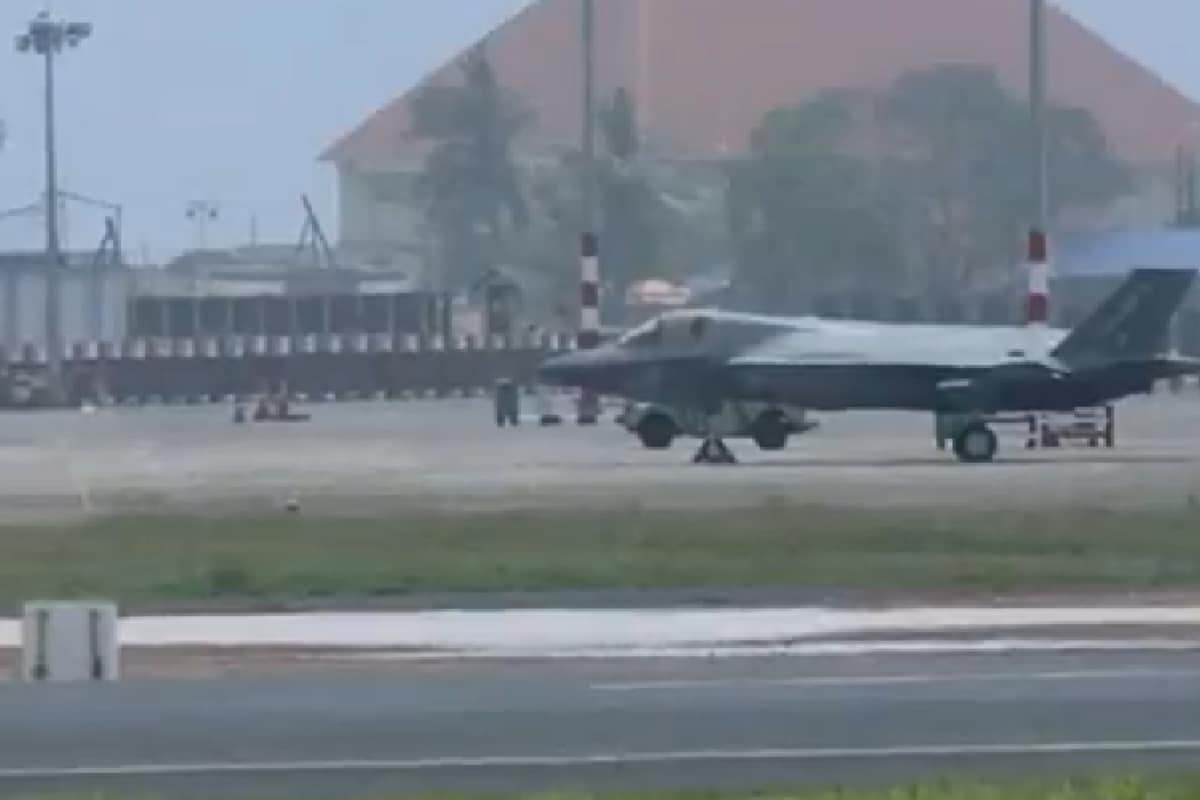

A British Royal Navy F-35B Lightning II fighter jet remains grounded at Thiruvananthapuram International Airport in Kerala, India, several days after making an emergency landing. The stealth jet, valued at over $100 million, was forced to divert to the airport on the night of June 14 after encountering adverse weather conditions and a suspected hydraulic system failure during a routine flight over international waters. The aircraft had taken off from HMS Prince of Wales, the UK's flagship aircraft carrier, which was stationed approximately 100 nautical miles off the Kerala coast.
Initially, reports suggested the emergency landing was due to low fuel, but it soon became apparent that the aircraft was facing more significant technical issues. The Indian Air Force (IAF) confirmed that the F-35B was detected and identified by its IACCS radar network and was cleared for recovery at Thiruvananthapuram, which is a pre-designated diversion location for British naval aircraft operating in the region. The IAF has also stated that it is providing all necessary support for the rectification and subsequent return of the aircraft.
Following the landing, Royal Navy technicians were airlifted to the airport to begin repairs. Despite their efforts, the aircraft has remained grounded due to persistent technical problems. A larger team from the United Kingdom is now expected to arrive in Kerala to undertake more extensive repairs.
The incident occurred during Operation Highmast, the UK's eight-month Indo-Pacific mission involving collaboration with 13 nations. HMS Prince of Wales leads the Carrier Strike Group, which has transited the Mediterranean and Red Sea, conducting multinational training and engagement activities to reinforce the UK's commitment to regional and global security. The F-35B is a crucial component of the UK's maritime strike capability, known for its short take-off and vertical landing (STOVL) capabilities.
While the aircraft is stranded, an armed detachment of the Central Industrial Security Force (CISF) is providing security. Airport authorities have arranged for accommodation and meals for the Royal Navy personnel. Air India has also offered hanger space for the jet, but the Royal Navy has declined the offer.
The grounding of the F-35B has raised concerns about the potential implications for the UK's operational capabilities in the Indo-Pacific region. An aircraft sitting on the ground is of no use, especially an advanced one like the F-35. It is barely visible to radar when airborne. The incident also highlights the logistical challenges associated with maintaining sophisticated military equipment in remote locations.
As the wait continues, the focus remains on resolving the technical issues and ensuring the safe return of the F-35B to its carrier. The incident has underscored the importance of international cooperation and the readiness of the Indian Air Force and airport authorities to provide assistance in unforeseen circumstances.